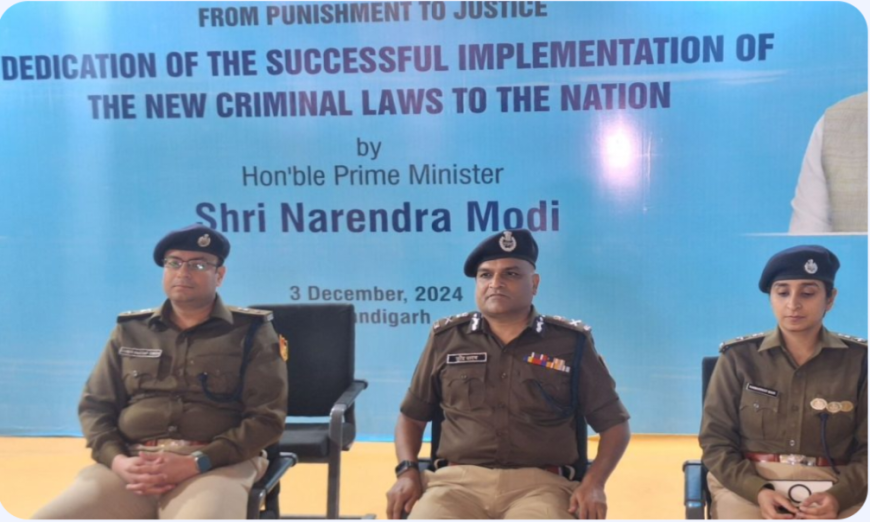Chandigarh has become one of the first Union Territories to ensure a secure society and contribute to India’s development by transitioning from punishment to justice through the complete implementation of three new criminal laws. The conceptualisation of the three laws Bharatiya Nyaya Sanhita (BNS), Bharatiya Nagarik Suraksha Sanhita (BNSS), and Bharatiya Sakshya Adhiniyam (BSA) was driven by the vision of the Prime Minister to remove colonial-era laws. Chandigarh has achieved this milestone within five months. Addressing the media, DGP Chandigarh, Surender Yadav said that these laws reflect a developed India.
Mr. Yadav noted that the CrPC, IPC, and Indian Evidence Act were not aligned with the needs of the people. The new provisions introduced under these laws have made India’s legal system more transparent, efficient, and adaptable to the requirements of contemporary society.
Akashvani Correspondent reports that Chandigarh has swiftly implemented provisions mentioned under these laws. To ensure a timely response, Chandigarh has equipped all 160 PCR vans with advanced Global Positioning System (GPS) technology. When someone dials 112, the system instantly alerts the nearest PCR van to the caller’s location, enabling police assistance to arrive within 3 to 5 minutes. Every police station in Chandigarh is now equipped with four special tablets.
These tablets are designed using blockchain technology, ensuring that any audio-visual evidence recorded through them remains tamper-proof. The server for these tablets is integrated with DigiLocker, a platform developed by the Central Government. Before the forensic team arrives, videos of the scene are recorded, and eyewitness statements are taken on-site. Once saved, these audio-visual recordings can only be accessed for viewing but cannot be altered in any way, ensuring the integrity of the evidence collected.

